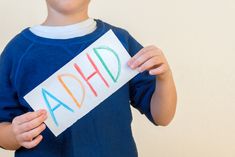
Education
ADHD Treatment Options: Medications and Non-Drug Treatments for ADHD
Attention-Deficit/Hyperactivity Disorder (ADHD) is a neurodevelopmental disorder affecting both children and adults. Treatment often involves a combination of medication and non-drug approaches.
Medications:
- Stimulants: The most commonly prescribed ADHD medications, including methylphenidate (Ritalin) and amphetamines (Adderall).
- Non-stimulants: Options like atomoxetine (Strattera) and guanfacine (Intuniv) for those who don’t respond well to stimulants.
- Antidepressants: Sometimes used off-label for ADHD, especially when comorbid conditions are present.
Non-Drug Treatments:
- Cognitive Behavioral Therapy (CBT): Helps develop coping strategies and manage symptoms.
- Behavioral therapy: Particularly effective for children, focusing on reinforcing positive behaviors.
- Mindfulness and meditation: Can improve focus and reduce impulsivity.
- Neurofeedback: A technique to train brain wave patterns associated with focus and attention.
- Lifestyle changes: Regular exercise, proper sleep, and a balanced diet can significantly impact ADHD symptoms.
- Educational support: Individualized education plans (IEPs) or 504 plans for students with ADHD.
- Organizational skills training: Helps in managing time, tasks, and belongings more effectively.
The most effective treatment often combines medication with one or more non-drug approaches, tailored to the individual’s specific needs and circumstances. Regular follow-ups with healthcare providers are crucial to monitor progress and adjust treatment as needed.




